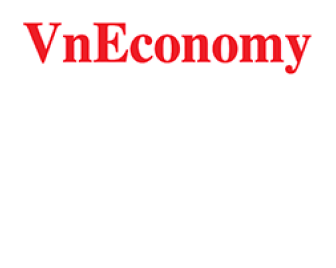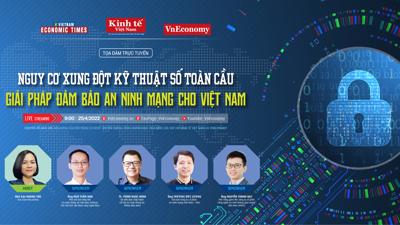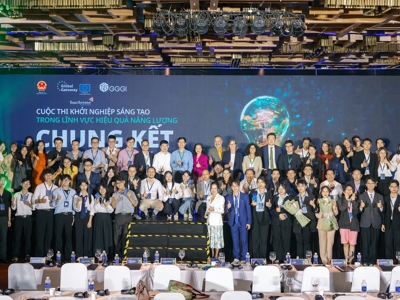CEO’s Approach: Sustainable Food Industry Transformation
Mr. Gricha Safarian, CEO of Puratos Grand-Place Vietnam, a company focusing on providing high-quality ingredients and solutions to bakery, patisserie, and chocolate professionals, talks about the company’s sustainable development strategy.

In the context of companies transitioning towards sustainability, how do you approach the process of determining the optimal pace and strategy to drive meaningful change, considering the importance of both swift action and comprehensive transformation? How do you navigate the complexities involved in this transition, recognizing that it is not a simple on/off switch?
In our case, the journey towards sustainability has been a gradual process, and it’s an ongoing endeavor rather than an overnight decision. We recently received an ESG (Environmental, Social, Governance) award, recognizing our commitment among 20 FDI companies. During a panel discussion on this topic, we acknowledged that sustainability is a continuous journey and that the pace of progress is never fast enough or deep enough. However, our guiding principle is to ensure that today is better than yesterday and that tomorrow will be even better.
To drive our sustainable strategy, we focus on value creation as the initial step. In an industry like chocolate, which has seen limited innovation in the past century, finding new avenues is crucial. We discovered a unique process of cocoa bean fermentation in wooden boxes, drawing inspiration from the wine industry.
This innovation has allowed us to produce a distinctive chocolate in Vietnam, with qualities similar to a fine wine rather than a mass-market product. By creating this value in our supply chain, we can then practice stakeholder capitalism by sharing the benefits with cocoa farmers through fair compensation and supporting environmental conservation efforts such as tree planting.
Our journey towards sustainability began about ten years ago, marked by value creation, wooden box fermentation, and low-temperature roasting. We believe that we now produce one of the finest chocolates in the world in Vietnam, even though many Vietnamese people are unaware of it. However, we are confident that awareness will grow over time.
Our chocolate is being exported to mature markets like Belgium, France, Japan, China, South Korea, ect. By selling our premium chocolate, we can distribute the generated surplus primarily to two stakeholders: the farmers and the environment. Additionally, we have taken steps to reduce our carbon footprint, such as installing solar panels on our factory roofs and ensuring efficient and localized transportation routes.
It fills me with great pride as it reflects the outcome of a journey that began back in 2008. Sustainability is a long-term commitment, and one of the main challenges we face is keeping our team, shareholders, and Board of Directors motivated and engaged, as not everyone shares the same long-term vision.
Do premium products have an advantage when it comes to customer willingness to make value-based decisions, compared to commodities like rice or fuel? We observed a similar trend with Tesla and electric cars, where they initially entered the market with a sports luxury offering before gradually expanding into the mass market segment.
In our case, we find ourselves in a situation similar to Tesla’s trajectory. Our carbon-neutral chocolate, produced through fermentation in wooden boxes, represents our premium range. However, we also offer a variety of other sustainable products that are more affordable. For example, we supply chocolate used in a majority of the ice cream consumed in Vietnam, sourced from the diligent work of farmers within our inventory.
Indeed, as you mentioned, having a top-range product can serve as a catalyst for the entire ecosystem. It’s similar to NASA conducting fundamental research at a premium price, which eventually trickles down to benefit the broader electronics industry. Sometimes, an elite approach is necessary to achieve significant breakthroughs.
However, what makes the sustainability aspect interesting is that the cocoa supply chain, particularly in Africa, faces numerous challenges such as poverty, child labor, slave labor, and deforestation. In Vietnam, we have developed a model that addresses these issues comprehensively, ensuring no child labor, no slave labor, and no deforestation. While one might assume we could use this competitive advantage to dominate the market, the reality is that we are a small player. Therefore, what we truly need is for our competitors to adopt and replicate our sustainable cocoa sourcing strategy. Collaboration within the industry is vital in ESG and sustainability efforts.
In summary, while sustainability initiatives can eventually yield competitive advantages, it is crucial for the industry to collaborate and collectively implement these strategies for lasting change and progress.
In light of Prime Minister Pham Minh Chinh’s declaration that achieving net-zero emissions by 2050 is an essential global development goal, with a focus on robust energy transition and low-emission development, there is now a new imperative for global trade and investment, as established during COP26. We observe major global companies urging their supply chains to adhere to specific standards. Additionally, government regulations, enforcement, and incentives play a crucial role. Considering this context, how do you envision the implementation of these measures, particularly for businesses in Vietnam?
About 3-5 years ago, sustainability and ESG concepts were relatively obscure and unfamiliar to many Vietnamese businesses. There was limited awareness and understanding surrounding these trends, and not much progress was being made in this regard. However, a significant turning point occurred during COP26. The Vietnamese Government demonstrated a strong commitment to sustainability by sending a substantial delegation, including the Prime Minister, and making significant pledges during the conference. This marked the beginning of the ESG revolution in Vietnam.
The government now fully comprehends that embracing sustainability is crucial for the future of the country. Companies recognize that failure to transition towards green practices could result in penalties and disadvantages. In fact, we are already witnessing the impact of these changes. Recently, the EU implemented strict regulations and enforcement measures, declaring that any goods originating from regions associated with deforestation would be prohibited from entering the European market.
This shift in perception and the tangible consequences imposed by international bodies have propelled the importance of ESG principles in Vietnam. The government’s proactive approach and commitment have served as a catalyst for driving sustainable practices and aligning Vietnamese businesses with global expectations in the realm of sustainability and ESG.



















